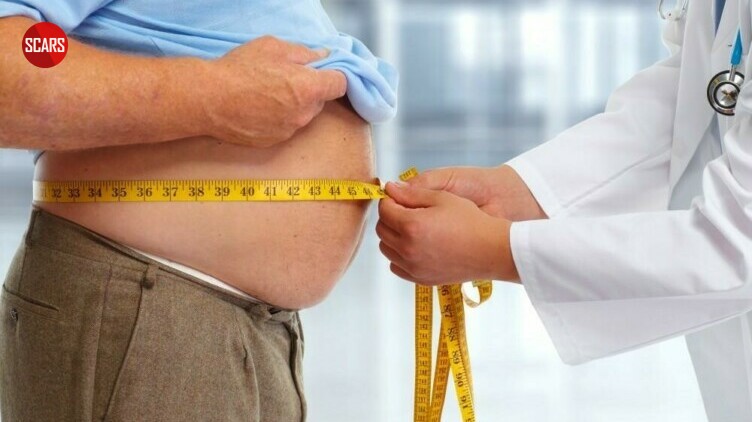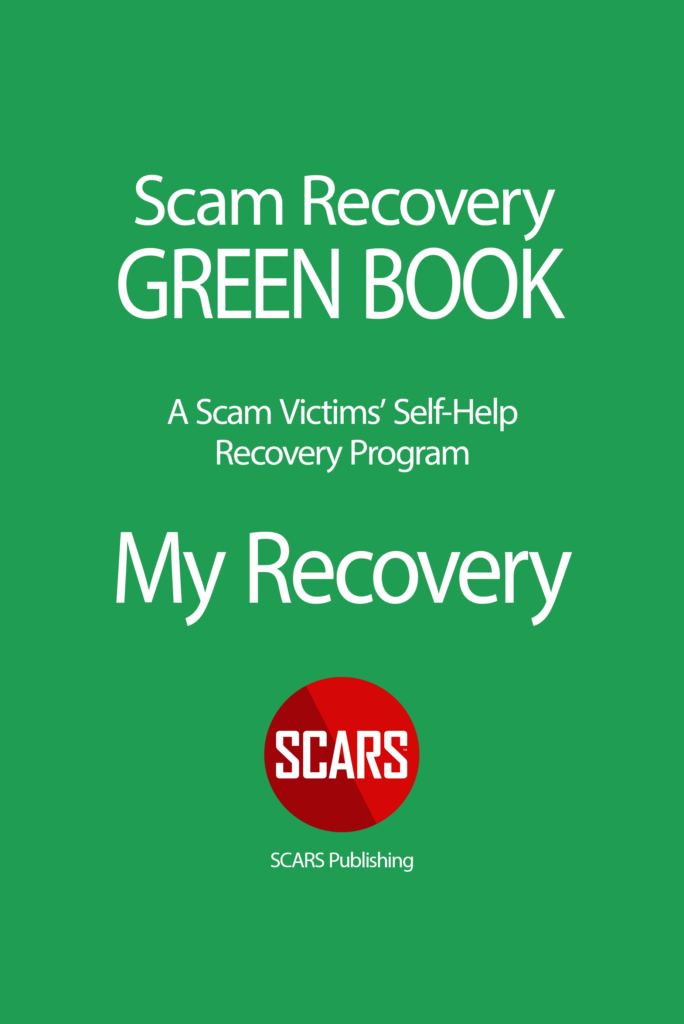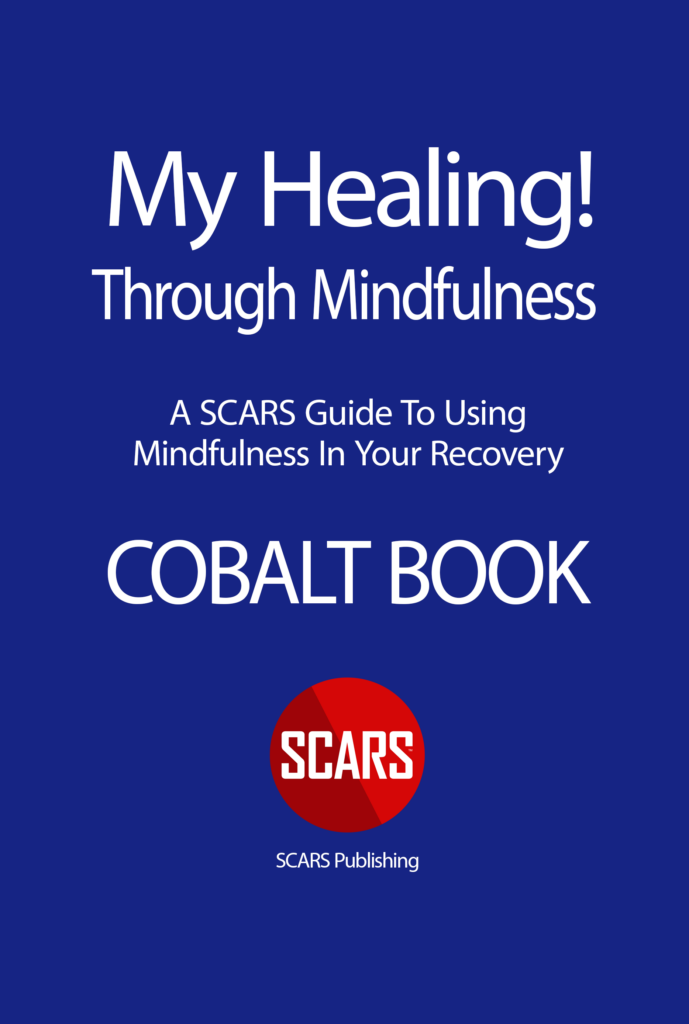Scam Victim Weight Gain And Psychological Trauma
The Somatic (Physical) Effects of Psychological Trauma are many and most of them are bad!
Primary Category: Psychological Trauma
Authors:
• Vianey Gonzalez B.Sc(Psych) – Psychologist, Certified Deception Professional, Psychology Advisory Panel & Director of the Society of Citizens Against Relationship Scams Inc.
• Tim McGuinness, Ph.D. – Anthropologist, Scientist, Director of the Society of Citizens Against Relationship Scams Inc.
About This Article
Psychological trauma, an emotional response to intensely distressing events, profoundly impacts both the mind and body. Originating from incidents such as crimes, accidents, or prolonged abuse, trauma triggers the “fight-or-flight” response, releasing stress hormones like adrenaline and cortisol.
While adaptive in acute scenarios, chronic activation of this response leads to significant health issues, including cardiovascular problems, metabolic disturbances, and immune system compromise.
Elevated cortisol levels result in increased fat storage, particularly visceral fat, and altered insulin production, promoting weight gain and insulin resistance.
Historically, these responses ensured survival during physical threats and food scarcity by mobilizing and storing energy efficiently. However, modern chronic stressors misalign with these ancient mechanisms, leading to obesity, metabolic syndrome, and other health complications.
Addressing psychological trauma through holistic approaches that consider both mental and physical health is crucial for promoting overall well-being and resilience.

Psychological Trauma has many effects on the Human Body – Almost All of them are Bad! One noticeable effect is Weight Gain
Introduction to Psychological Trauma and Its General Impacts on the Body
Psychological trauma is an emotional response to an intensely distressing event or series of events, that has profound and far-reaching impacts on both the mind and body. Traumatic experiences can arise from various sources, such as crimes like scams & fraud, accidents, natural disasters, or prolonged exposure to abusive environments. While the psychological ramifications of trauma—such as anxiety, depression, and post-traumatic stress disorder (PTSD)—are widely acknowledged, the physical consequences are equally significant and often intertwined with mental health.
When an individual experiences trauma, the body’s immediate reaction is to enter a heightened state of alertness, commonly known as the “fight-or-flight” response. This response is orchestrated by the autonomic nervous system, which releases stress hormones like adrenaline and cortisol to prepare the body to face the threat. While this mechanism is adaptive in short bursts, chronic activation due to unresolved trauma can lead to a myriad of health issues, and some of them can become chronic.
The persistent elevation of stress hormones disrupts various bodily systems, resulting in a host of physical symptoms and conditions. These can range from cardiovascular problems, such as hypertension and heart disease, to metabolic disturbances, including insulin resistance and obesity. Furthermore, the immune system can be compromised, making individuals more susceptible to infections and chronic inflammatory diseases.
Gastrointestinal issues, such as irritable bowel syndrome (IBS), are also commonly reported by those with a history of trauma, highlighting the profound connection between the brain and the digestive system. Musculoskeletal problems, including chronic pain and fibromyalgia, often accompany the emotional pain of trauma, further illustrating the intricate link between mind and body.
Understanding the general impacts of psychological trauma on the body emphasizes the need for a holistic approach to healing. Effective treatment should not only address the psychological scars but also consider the physical manifestations of trauma. Integrative therapies that combine psychological counseling with physical health interventions, such as stress management techniques, regular physical activity, and dietary adjustments, can offer a more comprehensive path to recovery. Recognizing the full spectrum of trauma’s effects is crucial in supporting resilience recovery and promoting long-term well-being for survivors.
Psychological Trauma and Weight Gain
Psychological trauma and chronic stress have a significant impact on fat production and storage in the human body, primarily through hormonal pathways involving cortisol, the primary stress hormone. Here’s an overview of this relationship and its evolutionary basis:
Relationship Between Psychological Trauma and Fat Production/Storage
- Hormonal Response to Stress:
- Cortisol: When a person experiences psychological trauma or chronic stress, the hypothalamic-pituitary-adrenal (HPA) axis is activated, leading to the release of cortisol from the adrenal glands. Cortisol plays a critical role in the body’s stress response, preparing it to handle threats.
- Insulin: Stress can also affect insulin levels. Elevated cortisol can lead to increased blood sugar levels, prompting the pancreas to release more insulin. High insulin levels promote fat storage.
- Impact on Metabolism:
- Fat Storage: Elevated cortisol levels promote the storage of fat, particularly visceral fat around the abdomen. This type of fat is more metabolically active and is linked to greater health risks compared to subcutaneous fat.
- Appetite and Cravings: Cortisol can increase appetite and cravings for high-calorie, sugary, and fatty foods. These foods provide a quick source of energy, which might have been advantageous in a fight-or-flight situation.
- Metabolic Rate: Chronic stress can alter the metabolic rate, sometimes slowing it down, which can lead to weight gain over time.
Evolutionary Reasons for This Mechanism
From an evolutionary perspective, the relationship between psychological stress and fat storage can be understood as a survival mechanism:
- Energy Reserve:
- Survival Advantage: In prehistoric times, humans faced periods of food scarcity and physical threats. The ability to store fat during times of stress would have provided a critical energy reserve that could be mobilized during prolonged periods of food deprivation or when physical exertion was required to escape danger.
- Energy for Brain Function: The brain requires a constant supply of glucose to function effectively. By storing fat, the body ensures that there is a reserve of energy that can be converted into glucose when needed, supporting cognitive functions during stressful times.
- Fight-or-Flight Response:
- Immediate Energy: The fight-or-flight response requires immediate energy to react to threats. By increasing blood sugar levels and promoting fat storage, the body ensures that it has the necessary fuel readily available to respond quickly to danger.
- Enhanced Alertness and Physical Performance: The energy stored in fat can be quickly mobilized to support prolonged physical activity and heightened alertness, crucial for survival in a hostile environment.
- Reproductive Advantage:
- Reproduction and Famine: In women, having adequate fat stores is essential for reproductive health. During periods of famine or stress, higher body fat reserves can support pregnancy and lactation, increasing the chances of survival for both the mother and offspring.
- Long-Term Health: By storing fat during times of stress, individuals might have been better equipped to withstand periods of scarcity, improving their long-term health and reproductive success.
Modern Implications
In the modern world, where stressors are often psychological rather than physical, and food is abundantly available, this ancient survival mechanism can lead to negative health outcomes such as obesity, metabolic syndrome, and cardiovascular disease. Chronic activation of the stress response due to ongoing psychological trauma can result in persistent high cortisol levels, leading to excessive fat storage and related health issues.
Understanding this relationship underscores the importance of managing stress and psychological trauma to maintain a healthy weight and overall well-being. Strategies such as mindfulness, therapy, regular physical activity, and a balanced diet can help mitigate the effects of stress on fat storage and promote better health.
Psychological Stress and Insulin Production
Psychological trauma and prolonged stress can result in increased insulin production due to the body’s adaptive responses to perceived threats. These responses have evolutionary and metabolic underpinnings aimed at ensuring survival during times of danger or scarcity. Here’s a detailed explanation of the evolutionary and metabolic reasons behind this phenomenon:
Evolutionary Perspective
- Fight-or-Flight Response: In response to stress, the body activates the “fight-or-flight” mechanism, a survival-oriented physiological reaction. This involves the release of stress hormones, primarily adrenaline (epinephrine) and cortisol, from the adrenal glands. These hormones prepare the body to either confront or flee from the threat.
- Energy Mobilization: Historically, encountering a threat would require immediate physical action. The body’s response includes mobilizing energy stores to provide quick fuel for muscles. This involves increasing blood glucose levels to ensure an adequate supply of energy.
- Survival and Adaptation: In ancestral environments, stress often meant physical danger or scarcity of food. Elevated insulin levels facilitated the rapid uptake and storage of glucose, ensuring that energy would be available during prolonged periods of exertion or scarcity. This adaptive mechanism helped our ancestors survive by optimizing energy use during times of stress.
Metabolic Reasons
- Cortisol and Glucose Regulation: Cortisol, a key stress hormone, increases blood glucose levels by promoting gluconeogenesis (the production of glucose from non-carbohydrate sources) in the liver and reducing the sensitivity of tissues to insulin. This is aimed at providing an immediate supply of energy to cope with the stressor.
- Insulin Production: As blood glucose levels rise due to cortisol’s actions, the pancreas responds by producing more insulin. Insulin is essential for transporting glucose from the bloodstream into cells, where it can be used for energy or stored as glycogen in the liver and muscles for future use.
- Chronic Stress and Insulin Resistance: Prolonged stress leads to sustained high levels of cortisol. Over time, this can cause tissues to become less sensitive to insulin, a condition known as insulin resistance. To compensate for this reduced sensitivity, the pancreas produces even more insulin. Chronic stress, therefore, creates a cycle of elevated insulin and glucose levels, which can lead to metabolic disorders.
Evolutionary Adaptation to Modern Challenges
In modern times, the stressors we face are often psychological rather than physical, and they are chronic rather than acute. However, our bodies still respond with the same mechanisms designed for survival in the wild. This mismatch between our physiological responses and the nature of modern stress can lead to metabolic imbalances.
- Obesity and Fat Storage: Increased insulin levels promote the storage of fat, particularly in the abdominal area. This was advantageous in times of food scarcity, but in today’s world of constant food availability, it contributes to obesity.
- Metabolic Syndrome: Prolonged elevated insulin and cortisol levels can lead to metabolic syndrome, a cluster of conditions that increase the risk of heart disease, stroke, and type 2 diabetes. These conditions include increased blood pressure, high blood sugar, excess body fat around the waist, and abnormal cholesterol levels.
Summary
The increase in insulin production in response to psychological trauma and prolonged stress is rooted in an evolutionary adaptation to ensure survival. This response involves complex interactions between stress hormones and metabolic processes designed to mobilize and store energy efficiently. However, in the context of modern, chronic stressors, these adaptive mechanisms can contribute to metabolic disorders and health issues, highlighting the importance of managing stress & trauma for overall health and well-being.
Important Information for New Scam Victims
- Please visit www.ScamVictimsSupport.org – a SCARS Website for New Scam Victims & Sextortion Victims
- SCARS Institute now offers a free recovery program at www.SCARSeducation.org
- Please visit www.ScamPsychology.org – to more fully understand the psychological concepts involved in scams and scam victim recovery
If you are looking for local trauma counselors please visit counseling.AgainstScams.org or join SCARS for our counseling/therapy benefit: membership.AgainstScams.org
If you need to speak with someone now, you can dial 988 or find phone numbers for crisis hotlines all around the world here: www.opencounseling.com/suicide-hotlines
More Trauma & Stress Related Information:
- Scam Victim Stress – The Psychological, Cerebral, and Physiological Effects – 2024 (scamsnow.com)
- Trauma & Nutritional Health – Take Your Vitamins – 2023 (scamsnow.com)
- Learning And The Challenges That A Scam Victim Faces From Trauma And Related Cognitive Effects – 2024 (scamsnow.com)
- Psychological Trauma Or PTSD And Chronic Headaches And Migraines – 2024 (scamsnow.com)
- The Relationship Between Chronic Fatigue Syndrome (CFS/ME) And Psychological Trauma – A Review – 2024 (scamsnow.com)
- Nightmares, Night Terrors, And Scam Victim Trauma – 2024 (scamsnow.com)
- The Unique Injury Of Betrayal Trauma On Scam Victims – 2024 (scamsnow.com)
- Fibromyalgia & Psychological Trauma Link – Medical Health Alert – 2023 (scamsnow.com)
Statement About Victim Blaming
Some of our articles discuss various aspects of victims. This is both about better understanding victims (the science of victimology) and their behaviors and psychology. This helps us to educate victims/survivors about why these crimes happened and to not blame themselves, better develop recovery programs, and to help victims avoid scams in the future. At times this may sound like blaming the victim, but it does not blame scam victims, we are simply explaining the hows and whys of the experience victims have.
These articles, about the Psychology of Scams or Victim Psychology – meaning that all humans have psychological or cognitive characteristics in common that can either be exploited or work against us – help us all to understand the unique challenges victims face before, during, and after scams, fraud, or cybercrimes. These sometimes talk about some of the vulnerabilities the scammers exploit. Victims rarely have control of them or are even aware of them, until something like a scam happens and then they can learn how their mind works and how to overcome these mechanisms.
Articles like these help victims and others understand these processes and how to help prevent them from being exploited again or to help them recover more easily by understanding their post-scam behaviors. Learn more about the Psychology of Scams at www.ScamPsychology.org
SCARS Resources:
- Getting Started: ScamVictimsSupport.org
- FREE enrollment in the SCARS Institute training programs for scam victims SCARSeducation.org
- For New Victims of Relationship Scams newvictim.AgainstScams.org
- Subscribe to SCARS Newsletter newsletter.againstscams.org
- Sign up for SCARS professional support & recovery groups, visit support.AgainstScams.org
- Find competent trauma counselors or therapists, visit counseling.AgainstScams.org
- Become a SCARS Member and get free counseling benefits, visit membership.AgainstScams.org
- Report each and every crime, learn how to at reporting.AgainstScams.org
- Learn more about Scams & Scammers at RomanceScamsNOW.com and ScamsNOW.com
- Learn more about the Psychology of Scams and Scam Victims: ScamPsychology.org
- Self-Help Books for Scam Victims are at shop.AgainstScams.org
- Donate to SCARS and help us help others at donate.AgainstScams.org
- Worldwide Crisis Hotlines: International Suicide Hotlines – OpenCounseling : OpenCounseling
- Campaign To End Scam Victim Blaming – 2024 (scamsnow.com)
Psychology Disclaimer:
All articles about psychology and the human brain on this website are for information & education only
The information provided in this and other SCARS articles are intended for educational and self-help purposes only and should not be construed as a substitute for professional therapy or counseling.
Note about Mindfulness: Mindfulness practices have the potential to create psychological distress for some individuals. Please consult a mental health professional or experienced meditation instructor for guidance should you encounter difficulties.
While any self-help techniques outlined herein may be beneficial for scam victims seeking to recover from their experience and move towards recovery, it is important to consult with a qualified mental health professional before initiating any course of action. Each individual’s experience and needs are unique, and what works for one person may not be suitable for another.
Additionally, any approach may not be appropriate for individuals with certain pre-existing mental health conditions or trauma histories. It is advisable to seek guidance from a licensed therapist or counselor who can provide personalized support, guidance, and treatment tailored to your specific needs.
If you are experiencing significant distress or emotional difficulties related to a scam or other traumatic event, please consult your doctor or mental health provider for appropriate care and support.
If you are in crisis, feeling desperate, or in despair please call 988 or your local crisis hotline.
-/ 30 /-
What do you think about this?
Please share your thoughts in a comment below!
More ScamsNOW.com Articles
SCARS LINKS: AgainstScams.org RomanceScamsNOW.com ContraEstafas.org ScammerPhotos.com Anyscam.com ScamsNOW.com
reporting.AgainstScams.org support.AgainstScams.org membership.AgainstScams.org donate.AgainstScams.org shop.AgainstScams.org
youtube.AgainstScams.org linkedin.AgainstScams.org facebook.AgainstScams.org














Leave A Comment